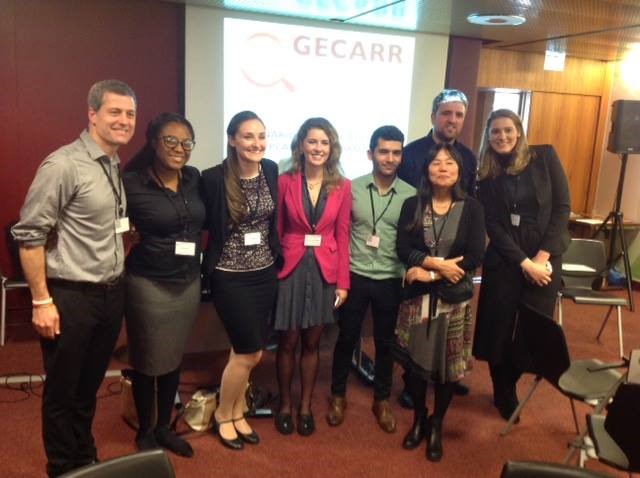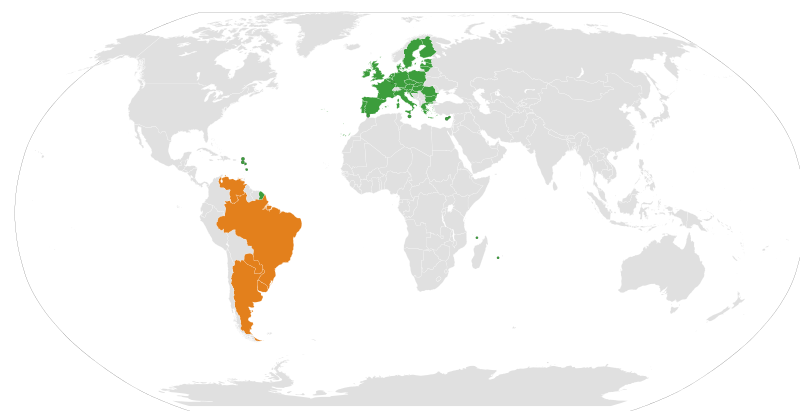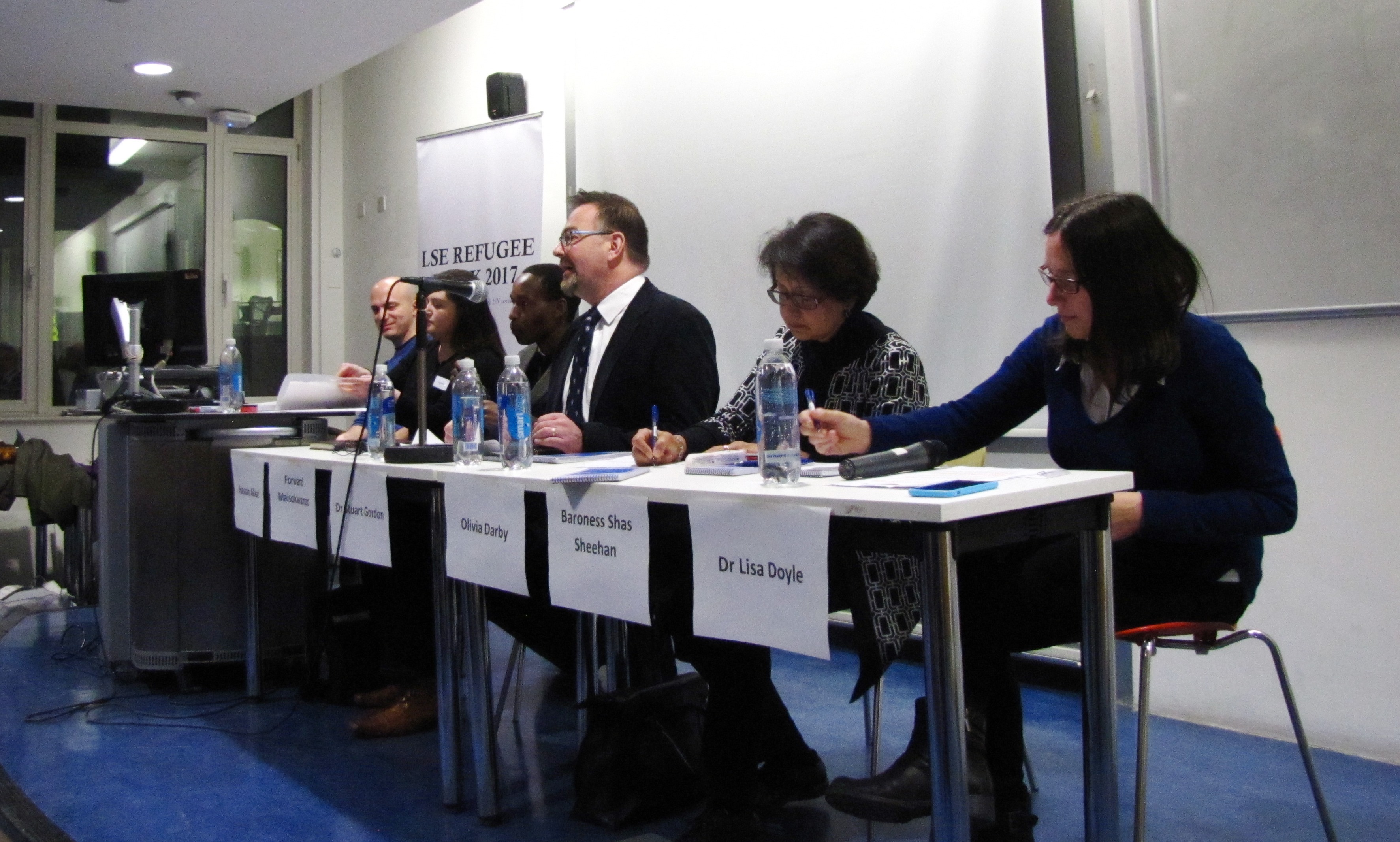The MSc International Development and Humanitarian Emergencies consultancy group for UN OCHA cultivated an enriching partnership that led to a presentation at the Humanitarian Networks and Partnerships Week, as well as another presentation at the Geneva Palais des Nations. The final consultancy report has recently been published online by OCHA. Meriah-Jo Breckenridge, Kirsten Raschko, and Zubin Malhotra share their experiences.
For a third consecutive year, the United Nations Office for the Coordination of Humanitarian Affairs (UN OCHA) was a client for the MSc International Development and Humanitarian Emergencies Consultancy Project at the London School of Economics and Political Science. Our group of five students was thrilled to be assigned such an important and influential client, and proud to see the partnership reap exciting opportunities. Our report, which was commissioned by the conflict analysis team of OCHA Geneva, can be found online here: Conflict Analysis: Linking Humanitarian Action and Peacebuilding. The Department has asked us to share our experience and advice for those in the field of International Development and Humanitarian Emergencies.

Upon receiving our consultancy assignments in October, our team was thrilled to learn that we would be working with UN OCHA, yet soon realized the intensity of research that would be required. We were drawn to this topic as we were interested in the formation, scope, and successes of current conflict analysis tools, and decided that, to thoroughly understand conflict analysis tools, we would need to gather information via rigorous research. This included engaging with cutting-edge academic dialogue as well as conducting dozens of key-informant interviews with specifically selected humanitarian and development workers, both in non-governmental organizations and within the UN OCHA. This methodology led to a range of connections with practitioners, who discussed policies and procedures surrounding conflict analysis tools. Additionally, this also allowed us to form productive relationships with these individuals, providing a unique insight into the everyday practicalities and challenges faced across the sector.
Our preliminary findings were reported to our client in January, who found the research very relevant to current issues facing OCHA and the broader humanitarian community, and subsequently invited us to present at the Humanitarian Networks and Partnerships Week (HNPW) in Geneva in February. At the HNPW, we delivered our presentation to approximately 70 practitioners from around the world, all of whom were interested in the growing field of conflict analysis. This presentation was extremely beneficial for the project, helping to establish tangible connections between academia and practice, and provide constructive feedback for the final phase of research. Subsequently, our final report was enriched by the perspectives of all those who contributed their insights. Upon the completion of the report in March, our client invited us back to Geneva to present the final findings at OCHA Headquarters, with a number of people showing interest in the research. We felt very honored to present at the Palais des Nations, and valued the opportunity to gather even more feedback for further research possibilities. Ultimately, following completion of all tasks, the report was successful and the OCHA conflict analysis team published the final document online, for which we are grateful.
In reflecting on the process of our project, we can now acknowledge how we have grown as academics, and although there were challenges, we are proud of the final outcome. We specifically recognize two major lessons learned, and hope that our experiences can guide those interested in conducting consultancies within the humanitarian emergencies sector in the future.
First and foremost, designing a rigorous research methodology to match the aim of your terms of reference is crucial, and this may need to be flexible based on the nature of the topic, and ultimately aim to increase its utility to both client and researcher. As previously mentioned, we designed our methodology in an unorthodox manner, using academic research as our foundation, and conducting dozens of interviews as the crux of our analysis. This was quite time-consuming, yet well worth the effort. Furthermore, this methodology ultimately allowed for an expansive depth and breadth of research which exemplified the positives and negatives of current conflict analysis tools. While this design was somewhat risky, we ultimately procured incredibly relevant information. We would greatly recommend that consultants look beyond the orthodox research methods, and collaborate with the client for a relevant way forward. It may require more work, but in our situation, it allowed for a tremendous educational and professional opportunity.
Second, we found that the opportunity to connect with practitioners from a variety of organizations, via interviews, and the HNPW was very valuable. These opportunities allowed us to work directly with individuals who provided ongoing feedback, whilst also giving us a professional space to engage with members of the humanitarian community. Connections from this experience led to feedback on our report, and opportunities to conduct wider research and observe conflict analysis processes in the field.
Throughout the entire process, our team felt honored to have been chosen, and more importantly, trusted, to complete such cutting-edge research for OCHA. From this experience, we would recommend that students pursuing a master’s degree in any field should value the benefit of taking smart risks and seizing opportunities to engage with people in your aspired profession. Our group extends a special thank you to the conflict analysis team at OCHA for providing valuable guidance, support, and the opportunity to be included in the presentations in Geneva, as well as the LSE International Development consultancy department for their guidance and support throughout the six months. We truly hope the partnership between LSE and OCHA continues to be rewarding for both parties in the years to come.
As part of the MSc International Development and Humanitarian Emergencies programme, students work in teams of five on a current policy issue for a humanitarian, development or emergency based organisation. Past clients have included UNICEF, UNHCR, the UK Disasters Emergency Committee, DFID, International Alert, the ICRC, MSF, NATO, the UK Army and Save the Children.
The views expressed in this post are those of the author and in no way reflect those of the International Development LSE blog or the London School of Economics and Political Science.





